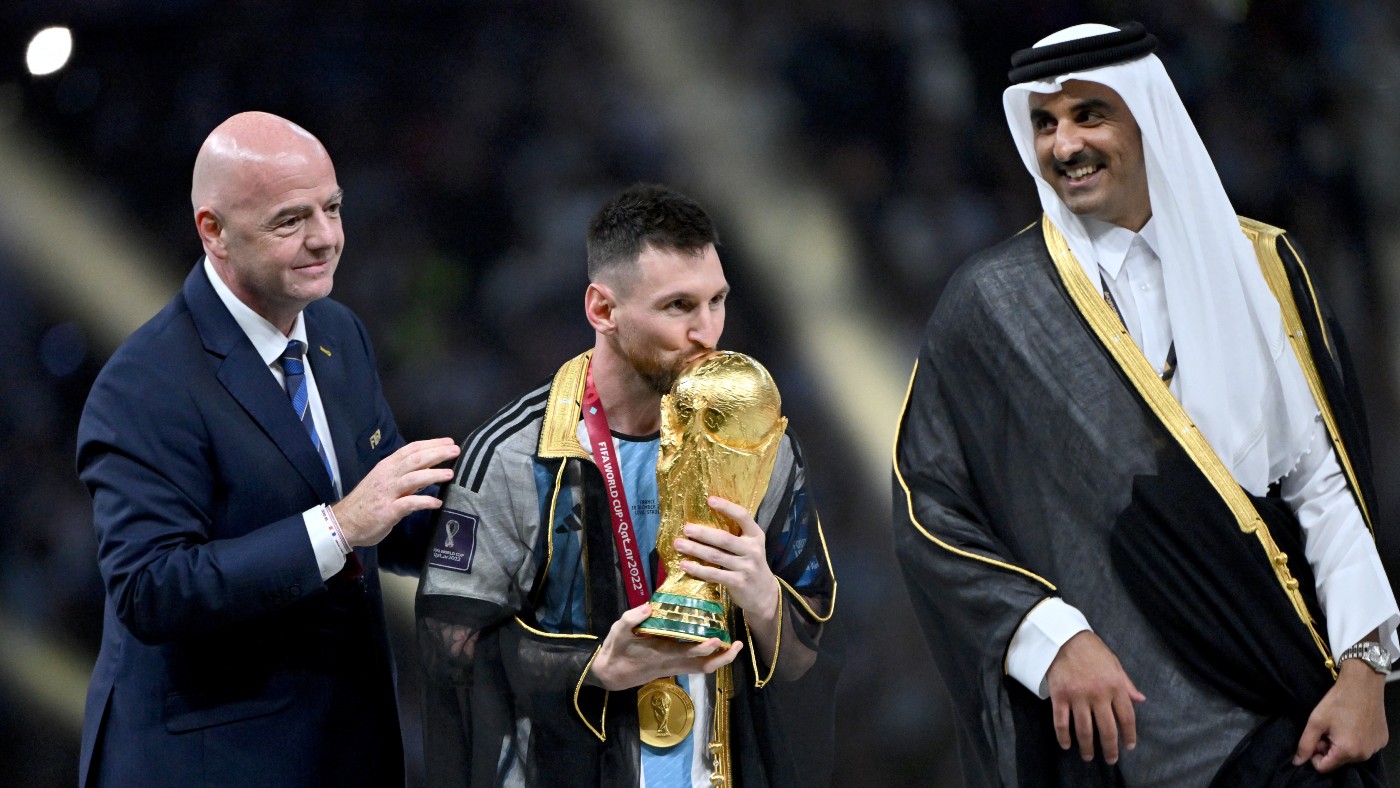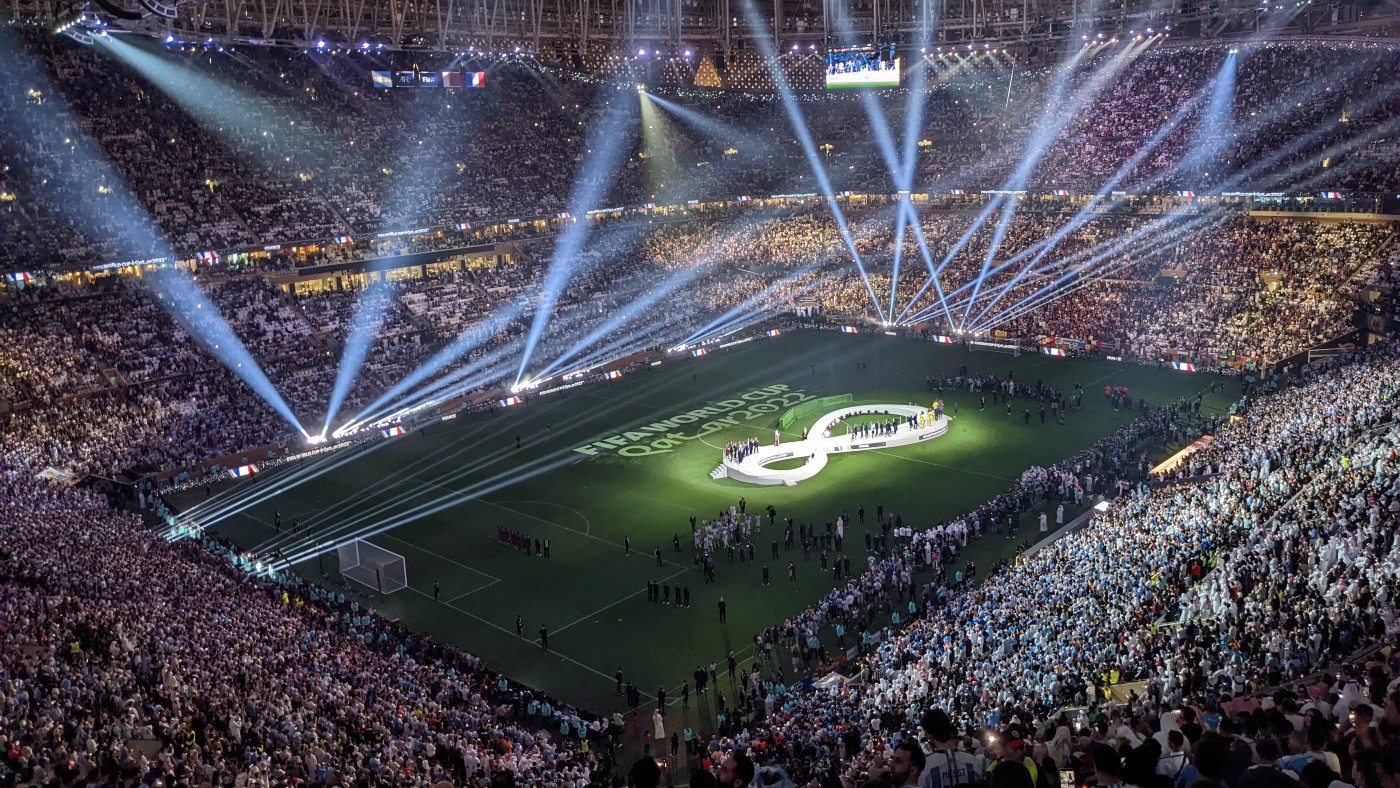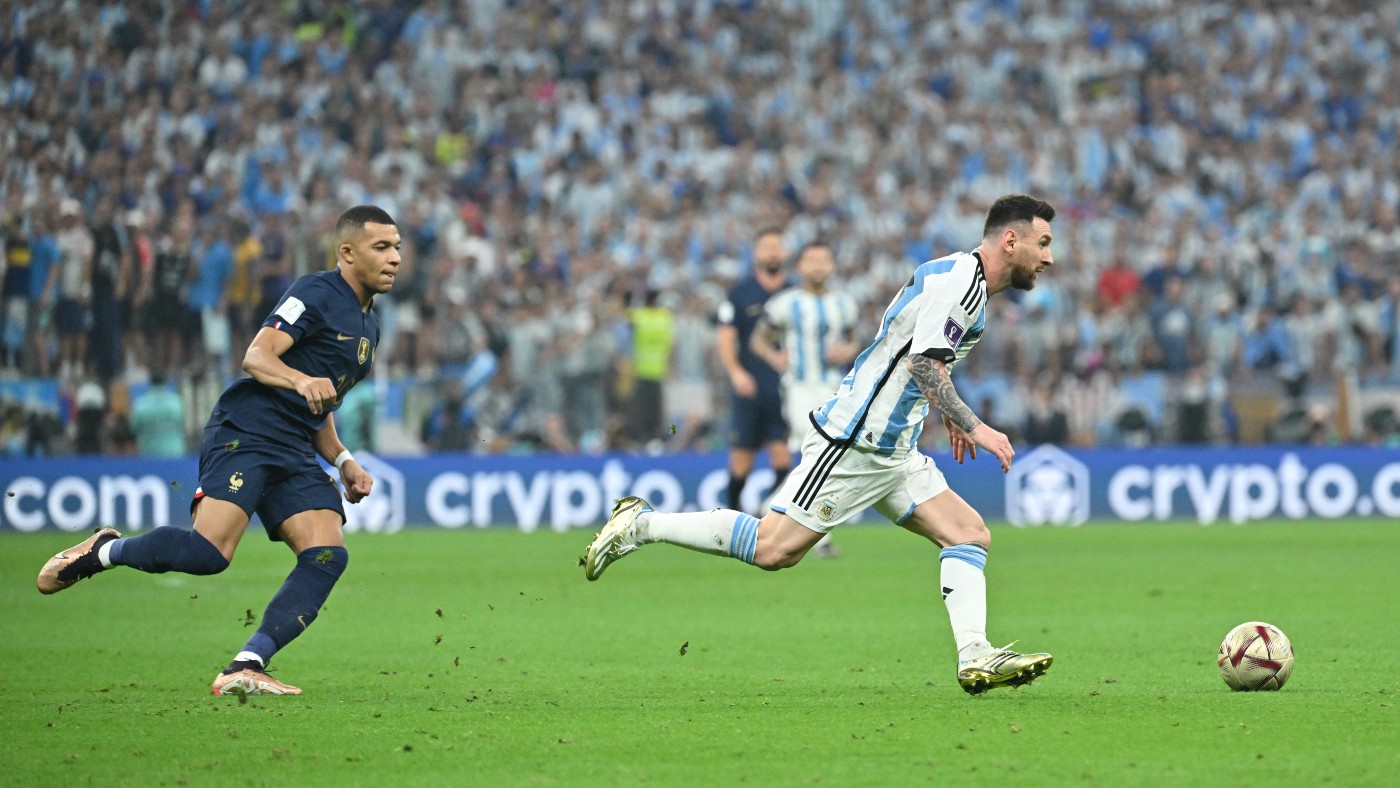A tale of ‘two World Cups’: Messi, Mbappé and ‘money well spent’ for Qatar
Amid sportswashing and human rights concerns, Qatar 2022 ended with the perfect final

A free daily email with the biggest news stories of the day – and the best features from TheWeek.com
You are now subscribed
Your newsletter sign-up was successful
Twelve years after being awarded the Middle East’s first Fifa World Cup, host nation Qatar is revelling in the aftermath of a classic finale, which culminated in Argentina captain Lionel Messi finally landing the biggest prize in football.
Held on the Gulf state’s national day, the match between Argentina and France will ultimately go down in history as the greatest final of all time. Fans were left bewildered by the action on the pitch at the Lusail Stadium, but the “other” side of this World Cup, the off-field controversies, will remain a huge talking point.
Qatar spent $6.5bn on stadiums and facilities and $200bn on infrastructure in order to host the “unlikeliest World Cup ever”, said Andrew England in the FT. But ever since it was awarded the tournament by Fifa in 2010, “ceaseless questions” have been asked about the “morality” of the decision.
The Week
Escape your echo chamber. Get the facts behind the news, plus analysis from multiple perspectives.

Sign up for The Week's Free Newsletters
From our morning news briefing to a weekly Good News Newsletter, get the best of The Week delivered directly to your inbox.
From our morning news briefing to a weekly Good News Newsletter, get the best of The Week delivered directly to your inbox.
Moved to winter because of the country’s climate and blighted by allegations of corruption, there were also concerns expressed about Qatar’s lack of media freedom, its anti-gay laws and its lack of football heritage. Most of all, though, there has been intense scrutiny of the deaths and injuries of migrant workers used for its World Cup mega-projects.

Qatar is the big World Cup winner
The real winner of this World Cup is not Argentina, the “upstart” semi-finalists Morocco, the “otherworldly” French hat-trick hero Kylian Mbappé, or the “legendary” Messi, said Jules Boykoff and Dave Zirin in The Nation.
The champion is Qatar, “and they didn’t have to win a match”. The host nation looks to have successfully – “with the West’s full complicity” – engaged in “brazen sportswashing”, earning plaudits and envy from authoritarians the world over. Qatar “executed its sportswash brilliantly”, and “despots” – and those “aspiring to be such tyrants” – are “noticing the dividends the country is reaping”. Even sportswashing that costs more than $200bn “appears to be money well spent”.
This World Cup “has delivered” for Qatar, said Sam Wallace in The Telegraph. Representatives of the “most powerful states in the world” have attended this tournament – and the world “now knows Qatar exists”. This is what “Big Football” can do for a nation.
A free daily email with the biggest news stories of the day – and the best features from TheWeek.com
Qatar “isn’t alone in crafting this game plan” though, said Daniel Rouse on The Score. Its Gulf neighbours are also “trying to boost their respective images” through sports, and money “isn’t much of an obstacle” in a region where fossil fuels were discovered throughout the 20th century.
After the Winter Olympics in Beijing and the World Cup in Qatar, “the Year of Sportswashing comes to an end”, said Scott Stinson in the Toronto Sun. The big question now is how long before Fifa does it again?
Saudi Arabia is rumoured to be “leading a potential joint bid” for the 2030 World Cup and that particular kingdom “has not been subtle about splashing around its wealth on sporting ventures”. It’s “not hard to imagine” the Saudis deciding that they want a “gleaming new 80,000-seat stadium” in Riyadh to host a World Cup final and it’s not hard to imagine that Fifa, “which is no one’s idea of a model for ethical governance”, would at least be “receptive to the idea”.

‘Two adopted sons’ star in a classic
There has “always been two World Cups” at Qatar 2022, said Barney Ronay in The Guardian. First, “the one Qatar built out of human wastage”, the one that has held “a mirror up not only to the depravity of big sport”, but to a global labour market that “drives migrant workers into lucrative near-captivity” – a system Qatar did not create, which it has “simply embodied with manic hypercompetence”. Then there is the “other World Cup”, the spectacle that brings “joy and drama”, and that “feeling of collectivism”. And which Messi’s brilliance has “elevated into one of the great sporting stories”.
Billed as “Messi vs. Mbappé”, this was the “dream World Cup final” for Qatari Emir Tamim bin Hamad Al Thani, said Jesús Mata in Spanish newspaper Marca. The duo are team-mates at Paris Saint-Germain, a club that has been owned by Qatar Sports Investments since 2011.
In the final, which ended 3-3 after extra-time before Argentina’s 4-2 triumph on penalties, Messi scored two and Mbappé scored three in a match full of end-to-end action. As well as lifting the trophy for the first time in his career, while dressed in a traditional Arab robe, Messi was also awarded the golden ball for the tournament’s best player. Mbappé, already a World Cup winner in 2018 with France, took home the golden boot for top goalscorer after his eight at Qatar 2022. It was a small consolation for scoring the first World Cup final hat-trick since Geoff Hurst’s for England in 1966.
So, “it turns out you can buy football history”, said James Olley on ESPN. With the “two adopted sons” of Qatari-owned PSG at the “epicentre of a pulsating, breathless 120 minutes”, it really could not have been “scripted more perfectly” for the host nation.
Mike Starling is the former digital features editor at The Week. He started his career in 2001 in Gloucestershire as a sports reporter and sub-editor and has held various roles as a writer and editor at news, travel and B2B publications. He has spoken at a number of sports business conferences and also worked as a consultant creating sports travel content for tourism boards. International experience includes spells living and working in Dubai, UAE; Brisbane, Australia; and Beirut, Lebanon.